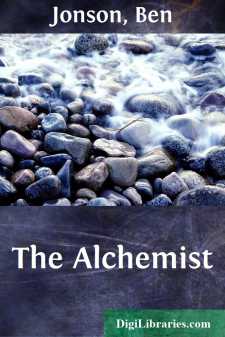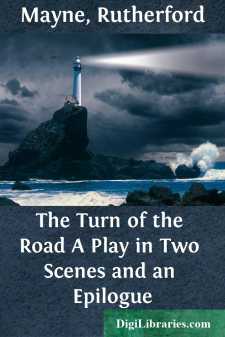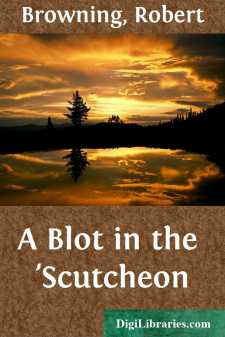Drama
- American 43
- Ancient, Classical & Medieval 45
- Asian 7
- Caribbean & Latin American 2
- Continental European 50
- English, Irish, Scottish, Welsh
- General 105
- Middle Eastern 1
- Religious & Liturgical 1
- Shakespeare 1
English, Irish, Scottish, Welsh Books
Sort by:
by:
Ben Jonson
INTRODUCTION The greatest of English dramatists except Shakespeare, the first literary dictator and poet-laureate, a writer of verse, prose, satire, and criticism who most potently of all the men of his time affected the subsequent course of English letters: such was Ben Jonson, and as such his strong personality assumes an interest to us almost unparalleled, at least in his age. Ben Jonson came of the...
more...
THE FIRST ACT The scene is a drawing-room, prettily but somewhat showily decorated. The walls are papered with a design representing large clusters of white and purple lilac. The furniture is covered with a chintz of similar pattern, and the curtains, carpet, and lamp-shades correspond. In the wall facing the spectator are two windows, and midway between the windows there is the entrance to a...
more...
by:
Rutherford Mayne
THE TURN OF THE ROAD. Mrs. Granahan.Is that the whole of them now Ellen?Ellen.Yes that's all now but one.She goes across to grandfather and lifts the plate.Have you finished granda?Grandfather.Yes dearie I have done.He pauses and fumbles for his pipe, &c.Is'nt that a fiddle I'm hearing?Ellen.Yes. Robbie's playing the fiddle in the low room. Mrs. Granahan.Arranging plates on...
more...
PREFACE A preface to a play seems generally to be considered as a kind of closet-prologue, in which—if his piece has been successful—the author solicits that indulgence from the reader which he had before experienced from the audience: but as the scope and immediate object of a play is to please a mixed assembly in representation (whose judgment in the theatre at least is decisive,) its degree of...
more...
by:
Robert Browning
INTRODUCTORY NOTE ROBERT BROWNING stands, in respect to his origin and his career, in marked contrast to the two aristocratic poets beside whose dramas his "Blot in the 'Scutcheon" is here printed. His father was a bank clerk and a dissenter at a time when dissent meant exclusion from Society; the poet went neither to one of the great public schools nor to Oxford or Cambridge; and no...
more...
by:
Tom Taylor
ACT I. Scene 1—Drawing room in 3. Trenchard Manor, C. D., backed by interior, discovering table with luncheon spread. Large French window, R. 3 E., through which a fine English park is seen. Open archway, L. 3 E. Set balcony behind. Table, R., books and papers on it. Work basket containing wools and embroidery frame. A fashionable arm chair and sofa, L. 2 E., small table near C. D. Stage handsomely...
more...
ACT I SCENE 1 A Street in Burgos; the Cathedral in the distance. [Enter Two Courtiers.] I:1:1 1ST COURT.The Prince of Hungary dismissed? I:1:2 2ND COURT.IndeedSo runs the rumour. I:1:3 1ST COURT.Why the spousal noteStill floats upon the air! I:1:4 2ND COURT.Myself this mornBeheld the Infanta's entrance, as she threw,Proud as some hitless barb, her haughty glanceOn our assembled chiefs. I:1:5 1ST...
more...
by:
Robert Dodsley
Four of the five ensuing Plays belong to a peculiar class of our early dramatic performances never yet especially noticed, nor sufficiently illustrated. Many specimens have of late years been printed, and reprinted, of Miracle-plays, of Moral-plays, and of productions written in the most matured period of our dramatic literature; but little or nothing has been done to afford information respecting a...
more...
by:
Robert Dodsley
INTERLUDE OF YOUTH. CHARITY.Jesu that his arms did spread,And on a tree was done to dead,From all perils he you defend!I desire audience till I have made an end,For I am come from God aboveTo occupy his laws to your behove,And am named Charity;There may no man saved beWithout the help of me,For he that Charity doth refuse,Other virtues though he do use,Without Charity it will not be,For it is written...
more...
by:
Charles Macklin
INTRODUCTION During his extraordinarily long career as an actor, Charles Macklin wrote several plays. The earliest is King Henry VII; or, The Popish Imposter, a tragedy based on the Perkin Warbeck story, performed at Drury Lane 18 January 1745/6 and published the same year. As the Preface states, it "was design'd as a Kind of Mirror to the present Rebellion"; and it provided the author...
more...











